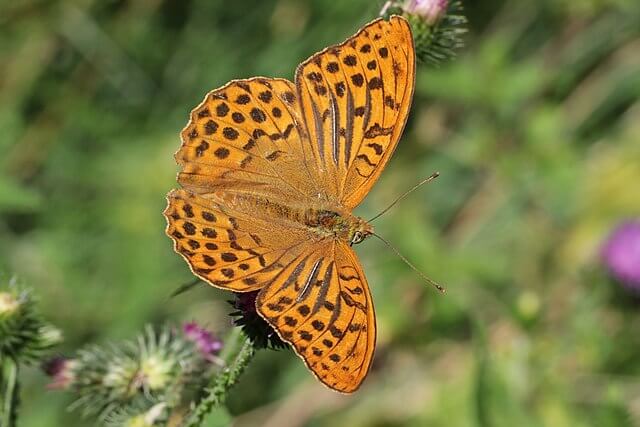
A butterfly has been spotted on the county’s edge for the first time in almost 200 years.
The Silver-washed Fritillary was recorded at Havannah and Three Hills Nature Reserve in Hazlerigg, on Newcastle’s border with Northumberland, by local naturalist Chris Barlow in August.
According to the Natural History Society of Northumbria, the species had not been seen in the county since 1850.
Stephen Kirtley, of the charity Butterfly Conservation, said the butterfly became extinct in the North East during the 19th Century but is now making a comeback, particularly in County Durham and Teesside.
He said he hoped the Silver-washed Fritillary would expand into south Northumberland and eventually spread further north. However, he noted the individual seen at Havannah was male and therefore would not be able to establish a colony on its own.
The Silver-washed Fritillary is more commonly found in Wales and southern England. Its last North East records were from the 1850s, before reappearing in 2017 at Wynyard Country Park near Stockton.
Since then, it has been spotted around Durham city and Castle Eden, with around 14 sightings so far this year—up from 10 in 2024.
“Perhaps at some stage in the mid-19th Century it became too cool for the butterfly to survive here,” Mr Kirtley said.
“Or perhaps changes in land management and woodland management meant that the places where it used to be found in the 1850s and before were no longer suitable and it’s not been found in this area.
“I strongly suspect and believe that because of climate warming, the butterfly has started to move north and is able to use habitat in our area that up until recently wasn’t suitable for it.”
Councillor Alex Hay, Newcastle City Council’s deputy leader and cabinet member for neighbourhoods, described the butterfly’s return as “a powerful indicator” of the benefits of conservation and habitat restoration at sites such as Havannah and Three Hills.
——————————————————————————
At Natural World Fund, we are passionate about restoring habitats in the UK to halt the decline in our wildlife.

